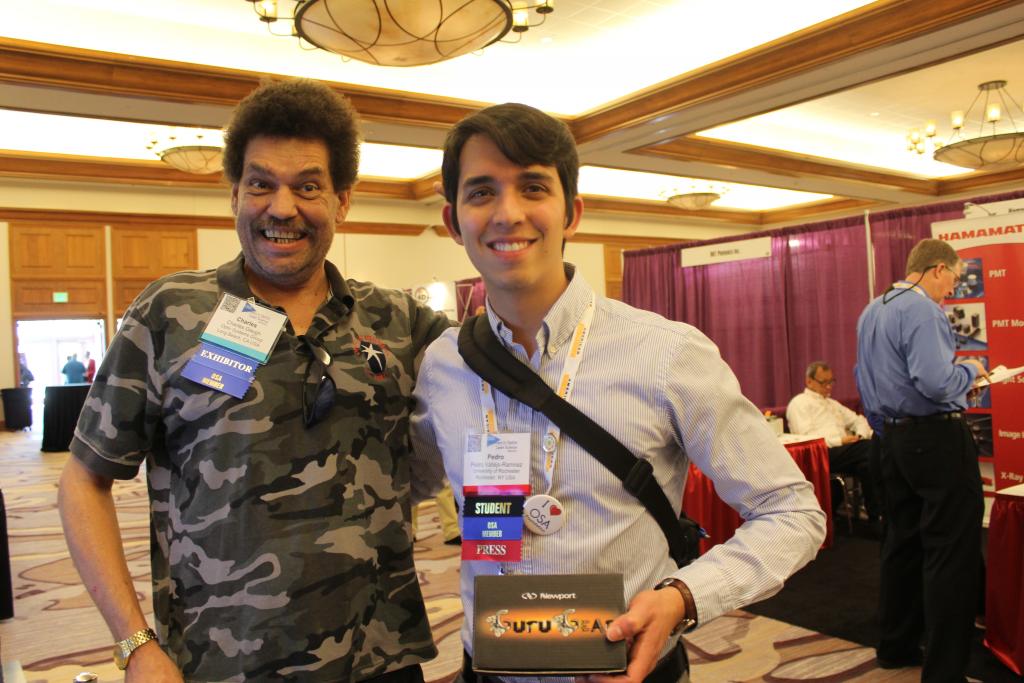
Charles Gaugh, Optics Expert, and myself at the “Frontiers in Optics” Industry Exhibit Hall
Last month, I traveled to Tucson, AZ, for an annual scientific conference in optics as a representative for the Rochester’s Optical Society of America Student Chapter. Every year, one representative from the chapter is eligible to attend with all expenses covered. The conference is titled “Frontiers in Optics,” and it focuses on bringing together scientists and students from all over the globe to showcase groundbreaking research, to network with peers and industry representatives, and to have a great time with fellow optics colleagues.
The conference was outstanding; it was a full week of information overload, constant networking, and blazing heat (I’m not complaining!). Quite frankly, many of the research talks were too involved or too specialized to be understood by undergraduates. Even though the topics and the titles were fascinating, most of the talks I attended flew completely over my head. The most valuable learning actually came from talking to industry representatives, professors, scientists, graduate students, and fellow undergraduates from all over the US, Europe, Asia, and even Australia! Listening to the life stories of seasoned individuals was riveting, as often times these people are happy to share their experiences and mistakes so that the new generations can learn and avoid making the same mistakes. All of this feedback helped me to establish a solid north in terms of my career ambitions and my future plans.
Scientific conferences are an excellent medium to explore the opportunities offered by your field after graduation; they can help you decide if you want to work in academia or in industry. Note that this is not limited to natural sciences or engineering. There are conferences for almost every discipline you can imagine. A quick Internet search will show you all of the opportunities available. My advice is to look up a conference that sparks your interest, and figure out a way to attend! It can be done either by submitting your own research, or volunteering to help run the conference. These are all valid ways that can get you closer to finding your professional compass. Don’t waste another second—look up conferences in your career field! The takeaway here is to step out of your comfort zone and talk to experienced individuals in fields that interest you. This is invaluable advice that will provide positive guidance for your future.

